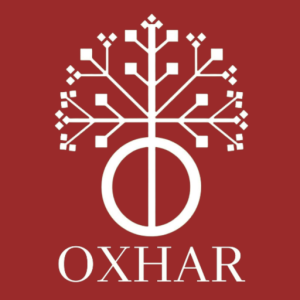This research framework outlines the ownership, rights, responsibilities, and data protection policies governing intellectual property (IP) created by researchers within educational and non-educational institutions. It aims to protect the interests of all stakeholders, including researchers, institutions, corporate funders, and research guides.
1. Scope of Framework
This framework applies to:
- Educational institutions (universities, colleges, research centers)
- Non-educational institutions (private companies, think tanks, research labs)
- Researchers and guides involved in institution-funded or corporate-funded research projects.
2. Ownership of Intellectual Property
Ownership rights to intellectual property created through research will be distributed based on the source of funding as follows:
2.1 Fully Funded by Institution
- Institution: 70% ownership rights
- Researcher(s): 30% ownership rights
- Research Guides: May receive up to 50% of the institution’s share (i.e., up to 35%).
2.2 Funded by Corporate or Other Institutions
- Corporate/Other Funding Entity: 70% ownership rights
- Institution: 10% ownership rights
- Researcher(s): 20% ownership rights
- Research Guides: May receive up to 50% of the institution’s share (i.e., up to 5%).
2.3 Ownership Variation Based on Research Output
The percentage distribution may vary depending on the nature, significance, and commercialization potential of the research. A mutual agreement will be signed at the start of the research, documenting the exact share of IP ownership.
3. Monetary Rights and Compensation
3.1 Distribution of Royalties or Profits
- Any revenue generated from the commercialization of the intellectual property (e.g., licensing, sale, or spin-offs) shall be distributed according to the ownership structure outlined in Section 2.
- Research Guides’ Share: Research guides are entitled to up to 50% of the institution’s share of royalties or profits. The exact percentage will depend on their level of involvement, subject to agreement before the project commences.
3.2 Adjustment for Non-Monetary Contributions
For non-monetary contributions (such as reputational benefits, academic credit, or future grant preferences), each stakeholder will negotiate their shares in a separate agreement.
4. Confidentiality and Non-Disclosure Terms
4.1 Non-Disclosure Agreement (NDA)
- All parties (institution, researcher, research guides, and any funding entity) must sign an NDA before beginning the research.
- The NDA will prevent the sharing or disclosure of research findings, methodologies, or proprietary data with unauthorized third parties during and after the research project.
4.2 Violation of NDA
Any breach of confidentiality will result in legal action, with penalties proportional to the damage caused, including possible revocation of IP rights or financial penalties.
5. Privacy and Data Protection
5.1 Data Privacy Standards
- All research activities must comply with the data protection laws relevant to the institution’s or corporation’s location (e.g., GDPR, CCPA).
- Personal data of individuals involved in research, including researchers, subjects, and stakeholders, must be anonymized and securely stored, with access restricted to authorized personnel only.
5.2 Data Ownership and Use
- Data collected during the research will be co-owned by the institution, researcher(s), and funding entity as per the IP ownership outlined in Section 2.
- The use of research data for future studies, publications, or external collaborations must be agreed upon by all stakeholders.
6. Dispute Resolution
6.1 Mediation and Arbitration
- In the event of disputes over intellectual property ownership, profit-sharing, or breach of confidentiality, all parties must first attempt mediation.
- If mediation fails, the dispute will be referred to arbitration, and the decision of the arbitrator will be final and binding.
6.2 Jurisdiction
- All disputes will be subject to the laws of the country where the institution or funding body is based unless otherwise agreed upon in the research agreement.
7. Review and Amendment of the Framework
This framework will be reviewed annually or as required to ensure it continues to protect the interests of all stakeholders. Any amendments will require the agreement of all parties involved in the research project.
8. Flexibility for Special Cases
In certain research projects that require different IP rights distribution (e.g., multi-institutional collaborations, government-funded projects, or high-risk ventures), a custom agreement can be created. This agreement must be signed by all relevant parties and will supersede this framework for the specific project in question.
Conclusion
This framework ensures that the intellectual property rights of all stakeholders in educational and non-educational institutions are protected. It balances the financial and non-monetary contributions of researchers, institutions, and funders while ensuring confidentiality, data protection, and clear procedures for dispute resolution.
